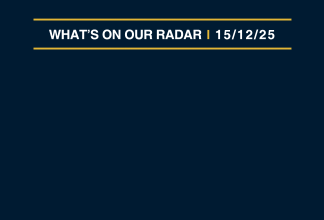From T2 to T1: What To Expect Now That Trades Will Settle in Just One Day
Written by The Inspired Investor Team
Published on May 16, 2024
minute read
Share:
We live in an age where we expect next-day – or even same-day – delivery when we buy anything online. It might surprise you that speedy delivery hasn’t applied to securities – until now.
The investment settlement cycle, which is the time between when a trade is placed electronically, and when the securities, or the sale proceeds, materialize in your account, has been two business days since 2017. On May 27 in Canada and May 28 in the U.S., though, the settlement period for equities, mutual funds and ETFs, corporate and government bonds, as well as principle-protected notes, will adopt what is called T+1 Settlement, cutting the time to settle a transaction to one business day from two. The change will make trading more efficient for investors and other market participants by giving them the proceeds of their trade by the next business day.
Why trades don’t settle right away
If you’re wondering why settlements don’t happen instantaneously, given most orders are now conducted electronically in microseconds, it has to do with managing market risk. While most trades go through without a hitch, the settlement process can get complicated given the volume of trades made daily, potentially involving different time zones and currencies.
The settlement cycle has been getting progressively shorter thanks to advances in technology. The last change to the cycle happened in September 2017 when it dropped from three to two.
These two days – and soon to be one – are used to give the seller or their representative time to gather and transfer documentation, and the buyer time to clear the funds required for the settlement. They also provide some insurance that the purchaser has the money needed for the transaction, especially if they’re counting on a sale of another security to fund the trade.
What does T+1 mean for you?
While most investors may not see much of a difference in the shift to T+1, the change will allow investors to access proceeds from sold positions a day sooner.
Another time you might notice the change is around year-end tax-loss selling. Until now, if you wanted the sale of a stock or bond to settle before the end of the year, you had to initiate the transaction several days before the final closing bell in December. Waiting too long could cause the trade to be settled in the New Year, given all the holidays and market closures. Now, you have more time to close out unwanted positions and have them qualify for the coming year’s tax filing.
The faster settlement timing will have a similar impact on dividend-paying stocks. Currently, you’re eligible to receive a dividend if you buy the shares two trading days before the ex-dividend date, which is the date when the stock starts trading without the right to receive the declared dividend. After the change to T+1, you can still capture the dividend if you buy the shares one business day before the ex-dividend date (although there could be some variations depending on the type of dividend and asset class). A detailed quote will provide you with a company’s dividend details, as will the company’s own investor relations section of its website.
Regardless of whether you’re an active trader or you favour a buy-and-hold approach, there’s not much you need to do to prepare for the change. The buying process won’t change for RBC Direct Investing clients, but those selling will get their payment a day earlier than you would have before this change.
RBC Direct Investing Inc. and Royal Bank of Canada are separate corporate entities which are affiliated. RBC Direct Investing Inc. is a wholly owned subsidiary of Royal Bank of Canada and is a Member of the Canadian Investment Regulatory Organization and the Canadian Investor Protection Fund. Royal Bank of Canada and certain of its issuers are related to RBC Direct Investing Inc. RBC Direct Investing Inc. does not provide investment advice or recommendations regarding the purchase or sale of any securities. Investors are responsible for their own investment decisions. RBC Direct Investing is a business name used by RBC Direct Investing Inc. ® / ™ Trademark(s) of Royal Bank of Canada. RBC and Royal Bank are registered trademarks of Royal Bank of Canada. Used under licence.
© Royal Bank of Canada 2025.
Any information, opinions or views provided in this document, including hyperlinks to the RBC Direct Investing Inc. website or the websites of its affiliates or third parties, are for your general information only, and are not intended to provide legal, investment, financial, accounting, tax or other professional advice. While information presented is believed to be factual and current, its accuracy is not guaranteed and it should not be regarded as a complete analysis of the subjects discussed. All expressions of opinion reflect the judgment of the author(s) as of the date of publication and are subject to change. No endorsement of any third parties or their advice, opinions, information, products or services is expressly given or implied by RBC Direct Investing Inc. or its affiliates. You should consult with your advisor before taking any action based upon the information contained in this document.
Furthermore, the products, services and securities referred to in this publication are only available in Canada and other jurisdictions where they may be legally offered for sale. Information available on the RBC Direct Investing website is intended for access by residents of Canada only, and should not be accessed from any jurisdiction outside Canada.
Explore More

3 things: Week of December 15
What the Inspired Investor team is watching this week
minute read

Year in Review: Tariffs, Tech, Rates and More
Looking back at some major stories of 2025, plus lessons investors can take into the new year
minute read

Here’s What Every Canadian Should Know About Estate Planning
Insights from Leanne Kaufman to help you feel more confident as you plan
minute read
Inspired Investor brings you personal stories, timely information and expert insights to empower your investment decisions. Visit About Us to find out more.







